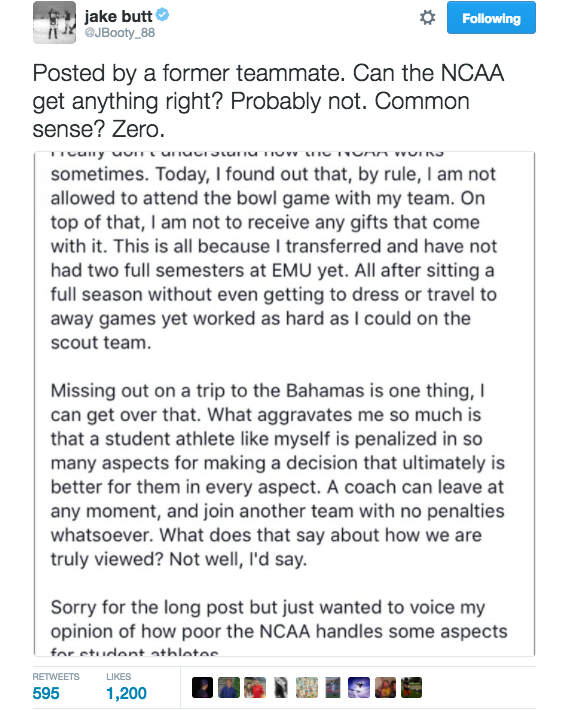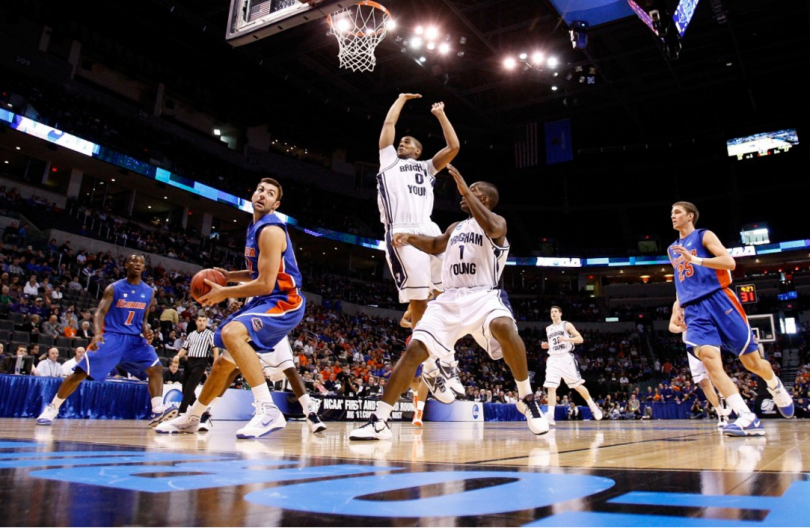aNewDomain — This last year at my company I started a prestigious program. I brought in the most exceptional high school talent I could find and I gave them critical jobs at my company. They were on the front lines — their skills drove up my top line revenue, which let me expand my business in other ways. They got great business experience. And I only had to pay them a small stipend.
 My business has some of the best leaders around. They take these kids under their wing and teach them all parts of the business, from finance to HR to technology.
My business has some of the best leaders around. They take these kids under their wing and teach them all parts of the business, from finance to HR to technology.
They aren’t going to work for me forever, but the free training I’m giving them will be invaluable for their future careers.
Now, none of the above is true. If it were, I’d be getting investigated for my treatment of employees. And if I were still in business at all after this, I’d be fighting some major lawsuits.
Yet this is exactly what’s going on in the NCAA.
It’s unbelievable how the NCAA’s poor treatment of college athletes is allowed to continue. The hypocrisies that surface every year as to how the NCAA treats both its coaches and players,should have ended the madness by now.
But it hasn’t.
We should no longer read about kids who are suspended from teams because a coach bought them some fast food on the way to the airport. Or because they sold an autograph, or piece of equipment. Or because they have find a job during the school year to make ends meet.
Here are four reasons why the situation is so patently absurd:
- These kids are attending your school because of their exceptional skill at a particular sport. Whether or not they also are able to gain some additional knowledge, or unrelated skills, while in school has little bearing on their value to the school.
- The school is directly benefiting financially from that skill. This is indisputable. The quality of the game on the court or field is the product they’re selling, and that quality is directly dependent upon the players in the game. Schools go after the best talent because it drives the best results for ticket sales, sponsorships and other related revenue generating channels.
- Schools already allow employees to have free school. There are many schools (perhaps most), that if you are an employee you are able to attend classes FOR FREE. So, somehow the school was able to rationalize the idea that they are both paying someone as an employee and offering schooling for free. It isn’t an either / or scenario…except when applied to athletes.
- This is only allowed to continue because of the classification of the activity as “amateur.” That label gives all governing bodies license to eliminate or severely limit compensation for those involved. But it isn’t clear why that label needs to exist in this case. There are many professionals working at educational institutions. These folks have specific skills that the school markets and needs to be competitive, and they are willing to pay them. However, recruiting and staffing a sporting team that is putting paid butts in seats — and generating millions in revenue in the process — is considered “amateur,” An so it isn’t required to compensate.
It’s a sad situation that sits squarely in the mind-numbing camp of “because that’s how we have always done it.” Or worse, it’s “because these are students who are getting a free education.”
Sorry, folks.
Those arguments worked back in the 1950s when even pro athletes were barely paid living wages. But in today’s sports-as-big-money-entertainment, such claims are neither reasonable or rational.
Administrators and coaches definitely benefit from the changing landscape. They’re raking in ever increasing salaries and perks around their services. They’re free to walk away from contracts and bail on their recruits with barely a look back, all the while continuing to ramp up their opportunities and earnings.
It’s time the athletes behind the show that brings eyeballs and ticket sales and sponsorships get into the action.
Cover image: PBS.org, All Rights Reserved.













